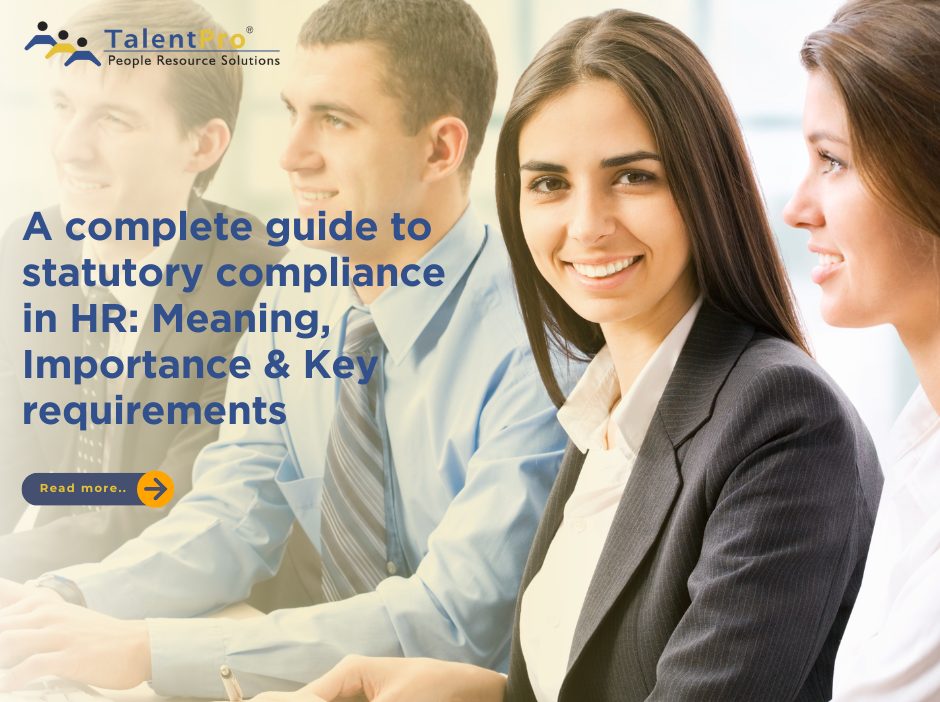HR is a very strategic department in any organization. Legal compliance has a considerable role to play in the functioning of HR.
Every HR professional must be aware of the legal modules under which he has to function. Violating Legal compliance may attract punishment for the organization from the government. As one goes up the ladder in the HR profession, knowledge about legal compliance becomes very necessary.
Let’s say that you are drafting a leave policy for a company, but fail to check the relevant shops and establishment act of the state, you will certainly get it wrong. The consequence can be paying hefty fines by the company if an inspector on a flying visit finds the due mistake. Most of the HR issues have legal implications and angles that need to be considered at a senior level. Thus every HR leader must be legally aware. Let us see some of the facades of compliance issues that every HR leader should be aware of.
The Employees Provident Fund Act, 1947
This is an essential labor law compliance act. It is aimed at providing social security to the employees. Under this act some of the major benefits such as a pension, medical care, housing, family obligations, education and benefits arising out of insurance, rights if older employees post-retirement are few aspects that are covered under this act.
Maternity Benefit Act, 1961
Under the legal compliance list, this is perhaps the most important one. If a pregnant woman has worked in the organization for 80 days, she is entitled to maternity benefits under this act. The benefit is in the form of paid maternity leave.
The Workmen’s compensation act, 1923
As an HR, you should be aware of the legal compliance, about the kind of liabilities that your organization might have in case of any labor accident. This act provides financial protection to the workers or their dependents, in case of an injury or accident at the time of work.
Read more : Shop and establishment act compliance checklist
The Payment of Gratuity Act, 1972
This act is a major one under the legal statutory compliance in HR. Gratuity is one of the many retirement benefits that an employee receives, and this act deals with the same.
Payment of wages act, 1936
As an HR, it is the duty to see that all the employees get paid without unnecessary deductions. This act provides standards for accessing the remuneration of the employees and ensuring that the salaries are governed as per the industry standard.
Payment of Bonus Act, 1965
As the name suggests, this act is aimed at providing a bonus to the employees of specific industries and establishments. Every worker, whether skilled or unskilled, is entitled to a bonus every accounting year if his salary is above 15,000 and he has worked for a minimum of 30 working days in a year.
Employee State Insurance Act, 1948
This statute acts as self-financing security for every employee in India. The employer is required to contribute 4.75% of the 6.5% of insurance to all the employees who are earning 15000 or less per month.
Industrial disputes act, 1947
This act aims to settle employer-employee disputes amicably. Right from a cap on the number of working hours to the provision of conciliation between the company and its employees, this act has it all covered
Read more : Understanding POSH Compliance: A Guide for Organizations
The apprentice act, 1961
If your organization offers an apprenticeship, then you need to make policies for them as per this act.
Sexual Harassment Act, 2013
This act aims to protect women employees from physical harassment at workplaces.











